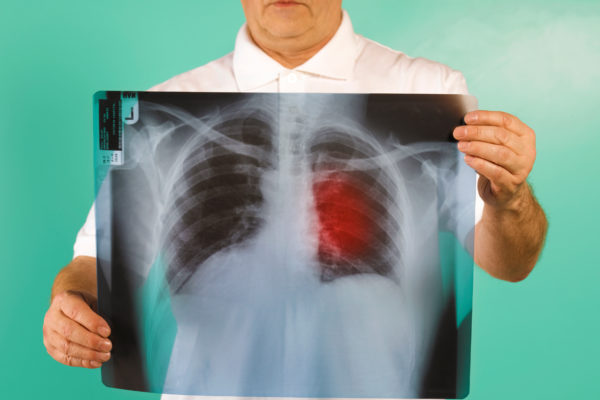
A new blood test allows monitoring of the treatment progress in melanoma patients. The test detects DNA fragments released by dying tumor cells, which can serve as an accurate and early indicator for the success of late-stage treatment for one of the most aggressive forms of skin cancer.
Cell-free circulating tumour DNA (ctDNA) is a promising biomarker. However, so far various detection methods have been used and large studies examining the association between changes in ctDNA and survival after BRAF, MEK or BRAF plus MEK inhibitor therapy are lacking. A new study published in The Lancet Oncology looked at whether baseline ctDNA concentrations and kinetics could predict survival outcomes.
In this clinical validation study, digital droplet PCR assays were used to measure BRAF V600 mutant ctDNA in plasma samples. Measurements were taken before and during treatment in patients enrolled in two clinical studies: COMBI-d and COMBI-MD. COMBI-d is a double-blind, randomized phase III study of dabrafenib plus trametinib versus dabrafenib plus placebo in treatment-naïve patients with BRAF V600 mutation positive inoperable or metastatic melanoma. COMBI-MD on the other hand is an open-label, non-randomized, phase II study evaluating dabrafenib plus trametinib in patients with BRAF V600 mutation-positive metastatic melanoma and brain metastases.
The researchers looked at the relationship between mutant copy number on the one hand, and progression-free survival, overall survival and best overall response on the other hand. Cox models, Kaplan-Meier plots and log-rank tests were used to determine the association of pre-treatment ctDNA concentrations with progression-free survival and overall survival. In addition to mutant copy number, the effect of additional prognostic variables, such as lactate dehydrogenase, were also investigated.
In COMBI-d, pre-treatment plasma samples were available from 345 of 423 patients (82%) and on-treatment (week 4) from 224 of 423 patients (53%). In cohort A of COMBI-MB, both samples were available from 38 of 76 patients (50%). ctDNA was detected in pretreatment samples from 320 of 345 patients (93%) in COMBI-d and in 34 of 38 patients (89%) from the COMBI-MB study. An increased baseline BRAF V600 mutation positive ctDNA concentration was associated with a worse overall survival outcome (hazard ratio [95% CI]: 1.13 [1.09-1.19], p<0.0001), regardless of treatment group and baseline lactate dehydrogenase concentrations (HR [95%-BI]: 1.08 [1.03–1.13], p=0.0020).
A ctDNA cutoff point of 64 copies per mL in the plasma was used to stratify patients enrolled in COMBI-d to a high risk or low risk group with respect to survival outcomes. The risk group the patient was in, turned out to have significant impact on surival chances; in regards to progression-free survival (PFS), a HR was calculated of 1.74 (95% CI: 1,37-2,21; p<0.0001). As far as overall survival (OS), the HR was 2.23 (95% CI: 1.73-2.87, p<0.0001).
These results were validated in the COMBI-MB cohort and similiar results were found. HR was 3.20 (95% CI: 1.39-7.34, p=0.047) for PFS and HR was 2.94 (95% CI: 1.18–7.32, p=0.016) for overall survival). In COMBI-d, undetectable ctDNA at week 4 was significantly associated with prolonged PFS and overall survival, especially in patients with elevated lactate dehydrogenase concentrations (HR [95% CI]: 1.99 [1.08-3.64], p=0.027 for PFS and HR [95% CI]: 2.48 [1.24-4.44], p=0.089 for overall survival).
In conclusion, BRAF V600 mutant ctDNA measurements before and during treatment can serve as an independent predictive biomarker for treatment success and clinical outcomes.
Reference